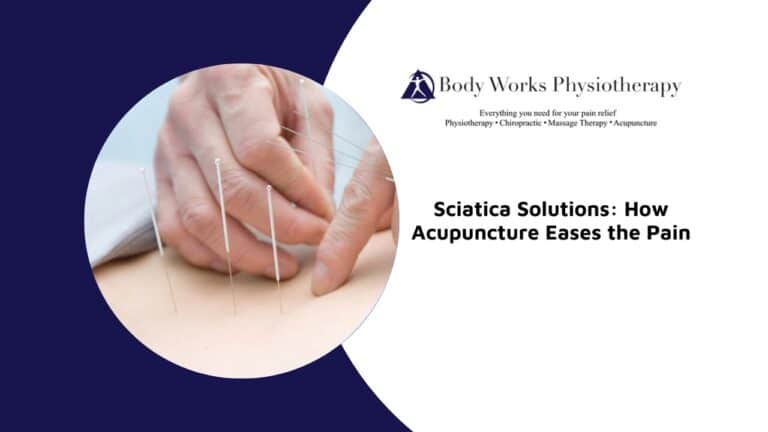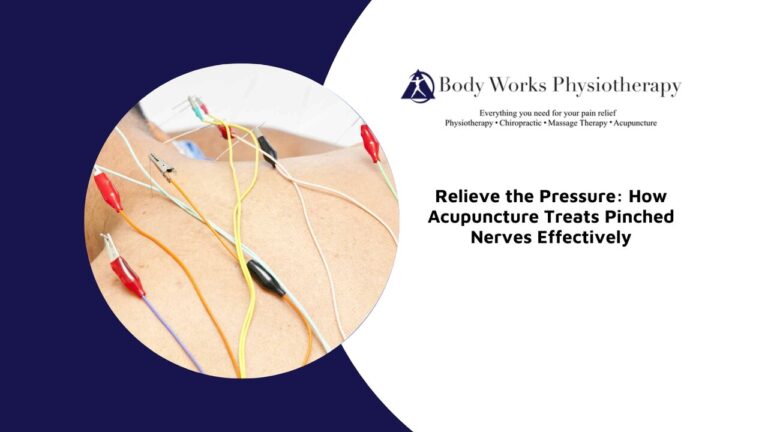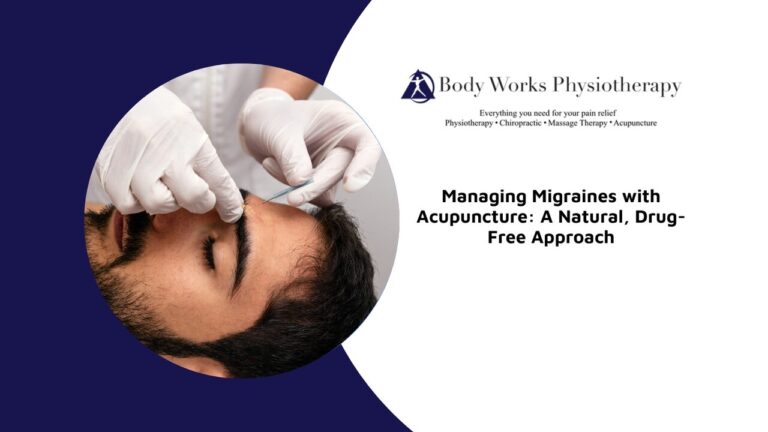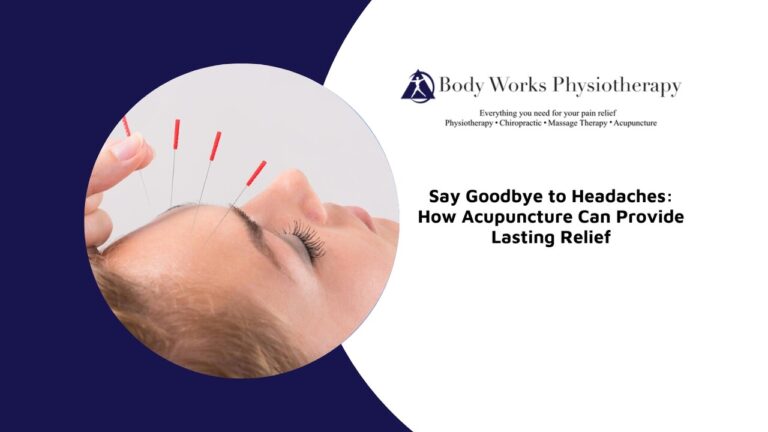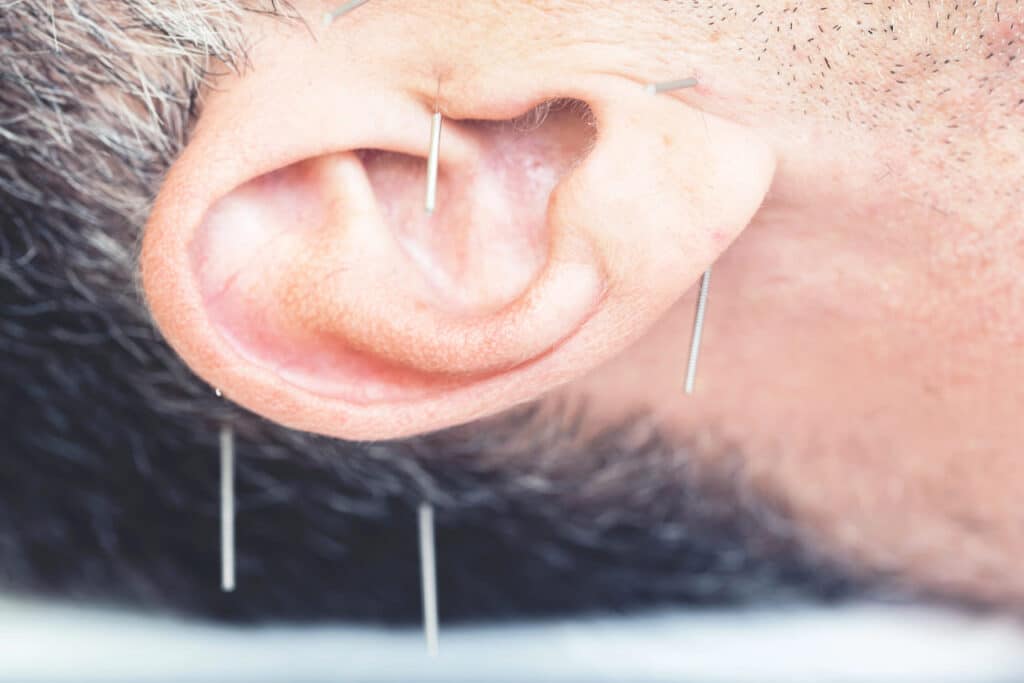
Tinnitus is a common condition that causes ringing, buzzing, or hissing in the ears—often without any external source. While not dangerous, it can disrupt sleep, focus, and daily comfort. Acupuncture has emerged as a complementary treatment for managing tinnitus, especially for those looking beyond medication or sound therapy. By targeting specific points in the body, it aims to improve circulation, calm nerve activity, and reduce symptom intensity. In this blog, we’ll explore how acupuncture works for tinnitus, who it may benefit, and what to expect from treatment.
How Acupuncture Works for Treating Tinnitus
Acupuncture is rooted in Traditional Chinese Medicine and works by stimulating specific points on the body to balance energy flow, improve circulation, and regulate the nervous system. For tinnitus, acupuncture targets areas linked to auditory function, nervous system regulation, and emotional balance.
- Improves Blood Circulation to the Ears: Better circulation can help reduce inflammation and support healing of sensitive inner ear structures.
- Calms Overactive Nerve Signals: By influencing the autonomic nervous system, acupuncture helps reduce the abnormal nerve activity believed to contribute to the perception of ringing or buzzing sounds.
- Balances the Body’s Energy Flow (Qi): According to Chinese medicine, disruptions in Qi flow can manifest as physical symptoms like tinnitus. Acupuncture restores balance by stimulating specific meridian points.
- Reduces Inflammation and Stress: Many people with tinnitus also experience high stress levels, which can worsen symptoms. Acupuncture helps relax the body and lowers stress-related inflammation.
- Stimulates Endorphin Release: These natural chemicals help reduce pain perception and promote a general sense of calm, making the tinnitus less intrusive.
By working on multiple levels—physical, neurological, and energetic—acupuncture provides a holistic approach to tinnitus management.
Is Acupuncture Effective for All Types of Tinnitus?
Acupuncture can be effective for managing certain types of tinnitus, particularly when symptoms are related to functional issues such as stress, circulatory problems, or muscle tension. People experiencing tinnitus due to nervous system overstimulation, anxiety, or poor blood flow to the auditory system may find relief, as acupuncture helps regulate nerve activity and enhance circulation. It can also be helpful for cases involving mild nerve irritation or physical tension around the jaw and neck, which are known contributors to tinnitus in some individuals. However, its effectiveness is more limited when tinnitus stems from irreversible causes, such as structural damage to the cochlea or auditory nerves, or from age-related or genetic hearing loss. In these cases, acupuncture may help reduce the stress and emotional distress associated with the condition, but it’s unlikely to reverse the damage itself.
Because tinnitus can have many underlying causes, a proper evaluation by a qualified healthcare provider is essential. This ensures the chosen treatment approach is well-suited to the individual’s specific condition and health history, helping set realistic expectations for outcomes.
Acupuncture Sessions for Tinnitus: What to Expect
Acupuncture sessions are typically calm and relaxing. Here’s what a typical visit may involve:
- Initial Assessment: The practitioner will review your health history, discuss your tinnitus symptoms, and assess related issues such as stress, sleep quality, digestion, and overall well-being.
- Point Selection and Preparation: The practitioner will choose specific points that relate to tinnitus—often located around the ears, scalp, neck, shoulders, wrists, or feet. You’ll be asked to lie down comfortably while the practitioner sterilizes the insertion sites.
- Needle Insertion: Thin, sterile needles are gently inserted into selected acupuncture points. Most people feel little to no discomfort—just a mild tingling or dull pressure.
- Relaxation Period: The needles remain in place for 30–60 minutes while you relax in a quiet environment. This time allows the nervous system to shift into a more balanced state.
- Aftercare and Recommendations: Your practitioner may provide tips on hydration, rest, or gentle movement following treatment. You may also receive recommendations for lifestyle changes or follow-up sessions.
How Many Acupuncture Sessions Are Needed to See Results for Tinnitus?
The number of acupuncture sessions needed for tinnitus relief varies depending on the individual’s condition, the underlying cause of their symptoms, and how their body responds to treatment. Many people begin to notice subtle changes after about three to five sessions, with more consistent relief often reported around the six to ten session mark. These are usually scheduled once or twice a week to maintain treatment momentum. For individuals with chronic or long-standing tinnitus, ongoing maintenance treatments may be necessary every few weeks to sustain improvements.
While some people respond quickly to acupuncture, others may take longer to see progress. If little or no change is observed after several sessions, a reassessment may be needed to explore alternative strategies or additional therapies. It’s also worth noting that lifestyle adjustments—such as improving sleep hygiene, managing stress, and supporting overall nervous system health—can enhance treatment outcomes. Acupuncture works best as part of a holistic care plan, especially when combined with supportive self-care practices that reinforce the body’s natural healing processes.
Possible Risks or Side Effects of Acupuncture for Tinnitus Treatment
Acupuncture is widely regarded as a safe and well-tolerated treatment when performed by a licensed practitioner. That said, it’s important to be aware of both mild side effects and rare risks so that people can make informed decisions and take appropriate precautions.
- Bruising or Soreness: Minor tenderness or discoloration around the needle sites may occur, especially in sensitive areas, but these symptoms are temporary and usually resolve on their own.
- Fatigue or Lightheadedness: Some individuals report feeling a bit tired or dizzy following their first few sessions, likely due to the body’s adjustment to nervous system stimulation.
- Infection Risk: While extremely rare, infections can occur if proper hygiene is not followed—this is why the use of sterile, single-use needles is essential for safety.
- Improper Needle Insertion: When performed by someone unqualified, acupuncture may cause muscle irritation or nerve discomfort, underscoring the importance of choosing a reputable provider.
- Precautions for Certain Conditions: People with bleeding disorders, those on blood thinners, or individuals who are pregnant should inform their practitioner beforehand so the treatment can be adjusted accordingly.
While side effects are typically mild and uncommon, acupuncture should always be performed by a trained professional to ensure a safe and effective experience.
Can Acupuncture Completely Cure Tinnitus, or Does It Only Manage Symptoms?
Acupuncture is generally used to manage tinnitus symptoms rather than cure the condition outright, especially in chronic cases. While it may not eliminate tinnitus entirely, it can significantly reduce the intensity and frequency of the sounds for many individuals. People often report improvements in how noticeable or intrusive their tinnitus feels, especially when stress or sleep issues are contributing factors. The calming effects of acupuncture can also lead to better rest, reduced anxiety, and a greater sense of control over the condition.
However, for cases linked to permanent hearing loss or structural damage in the auditory system, acupuncture is unlikely to reverse the underlying issue. It also isn’t a one-time fix; ongoing sessions may be required to maintain results. For this reason, acupuncture is best understood as a complementary therapy. It can work alongside other treatments such as sound therapy, counselling, or medication to provide a more comprehensive approach to symptom relief and overall well-being.
Comparing Acupuncture to Other Treatments for Tinnitus
Acupuncture provides a holistic, non-invasive approach to managing tinnitus symptoms, and while it may not replace other medical treatments, it often complements them by addressing underlying stress and nervous system imbalances.
- Compared to Medication: While medications may offer relief from anxiety or sleep disturbances associated with tinnitus, they often come with side effects and don’t directly target auditory function. Acupuncture works at the neurological level to calm nerve signals and support overall balance.
- Compared to Sound Therapy: Sound therapy uses external noise to mask the internal ringing, whereas acupuncture seeks to reduce the body’s sensitivity to the tinnitus itself by calming overactive auditory pathways.
- Compared to Hearing Aids: Hearing aids are effective for those with hearing loss-related tinnitus by improving auditory input. Acupuncture, on the other hand, is a natural alternative that may help individuals whose symptoms are unrelated to measurable hearing loss.
- Best Use Case: Acupuncture is especially helpful for those whose tinnitus is triggered or worsened by stress, fatigue, or muscle tension, making it a valuable complement to conventional care strategies.
For many individuals, acupuncture offers an added layer of relief by supporting the body’s natural regulation systems alongside other tinnitus treatments.
Find the Relief You’ve Been Looking For
While acupuncture may not be a cure for all types of tinnitus, it offers a safe and holistic way to manage symptoms and improve overall well-being. From reducing stress and nerve overactivity to enhancing sleep and relaxation, acupuncture can be a valuable part of your tinnitus management plan.At Body Works Physiotherapy in Scarborough, we provide customized acupuncture treatments tailored to your unique symptoms and health goals. Book your appointment today and take a step toward quieter, more peaceful living.

